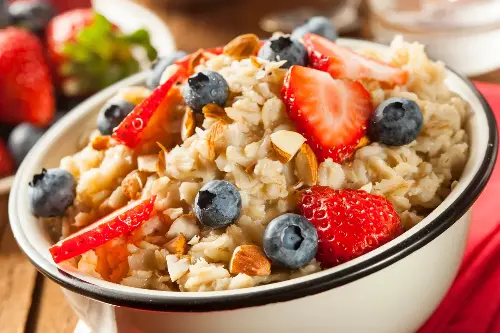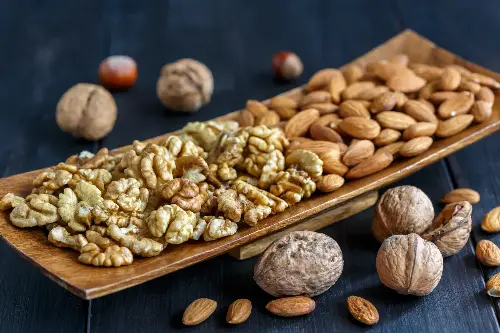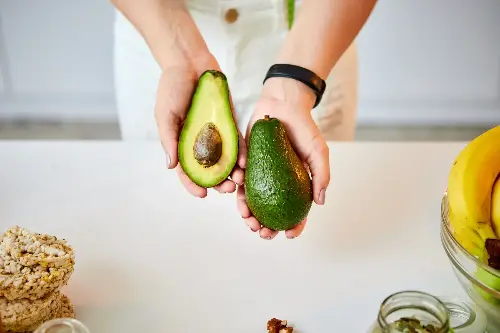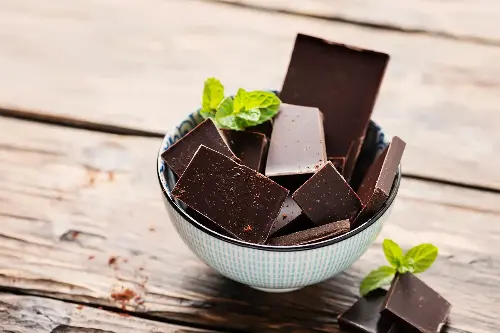Many people grapple with the problem of high cholesterol, a key risk factor for cardiovascular disease. However, not all hope is lost; numerous foods can actively help combat high cholesterol and protect your heart. This article will guide you through some of the most beneficial dietary choices for safeguarding your cardiovascular health.

One of the most well-known heart-friendly foods is oatmeal. Rich in soluble fibre, particularly beta-glucan, oats help to lower bad cholesterol (LDL) levels. The beta-glucan forms a gel that binds with cholesterol-rich bile acids in the intestines, reducing their absorption into the bloodstream. Swapping your morning toast for a bowl of oatmeal can be a savvy choice for your heart.
Nuts and seeds also play a pivotal role in heart health. Almonds, walnuts, flaxseeds, and chia seeds are teeming with fibre, protein, and healthy fats. They particularly boast high levels of omega-3 fatty acids, which help to lower triglycerides, a type of fat found in your blood. Regular consumption of these crunchy delights can lead to significant cardiovascular benefits, such as reduced artery inflammation and improved cholesterol levels.

Keep an eye on the fruits and vegetables spectrum; vibrant, colourful produce offers a myriad of protective chemicals. Dark leafy greens like spinach, kale, and Swiss chard are packed with lutein, fibre, and other nutrients such as folates that support heart health. Berries, particularly blueberries and strawberries, contain high levels of antioxidants known as polyphenols, which can help lower cholesterol and reduce oxidative stress on the heart.
It’s not just these traditional produce choices that pack a punch; avocados deserve a notable mention as well. These green gems are more than just trendy toast toppings. They are loaded with monounsaturated fats and fibre, both of which are crucial for heart health. Avocados can help lower ldl cholesterol while maintaining or even elevating good cholesterol (hdl) levels, making them a delectable ally in your diet.

Speaking of monounsaturated fats, olive oil is often lauded as a heart-healthy cooking staple. Replacing butter or other saturated fats with olive oil can result in substantial improvements in heart health markers. Its high levels of antioxidants, particularly polyphenols, also contribute to its protective qualities. Extravirgin olive oil is the most beneficial form, as it undergoes the least processing and retains more of its natural nutrients.
Then there’s the seafood section, especially oily fish like salmon, mackerel, and sardines. These fish are excellent sources of omega-3 fatty acids, which offer various heart-protective benefits. Omega-3s help to reduce inflammation, lower blood pressure, and keep blood vessels functioning optimally. Including these fish in your diet at least twice a week can be a strategic move towards better cardiovascular health.

You might be surprised to find out that certain beverages can also do wonders for your heart. Green tea, for instance, has been shown to improve cholesterol levels due to its high content of catechins, antioxidants that help to lower ldl levels. A couple of cups a day can contribute to a healthier heart profile. On a similar note, moderate consumption of red wine, thanks to its high levels of polyphenol antioxidants, has been linked to improved heart health. However, it's crucial to remember that moderation is key; excessive alcohol intake can have the opposite effect.
Legumes such as lentils, beans, and chickpeas are another powerhouse group of foods for combating high cholesterol. Rich in both protein and soluble fibre, they help to keep cholesterol levels in check by binding to bile acids and promoting their excretion. Regular consumption of legumes can lead to improved blood lipid profiles and reduced risks of cardiovascular events.
Dark chocolate isn't just a tasty treat; it also offers surprising heart-health benefits. Rich in flavonoids and antioxidants that have been shown to improve circulation and reduce ldl levels, dark chocolate can be quite the heart-healthy indulgence. Choose varieties that are at least 70% cocoa to glean the most benefits, and remember, a little goes a long way.

Whole grains, such as brown rice, barley, and quinoa, are also instrumental in maintaining cardiovascular health. These grains are rich in fibre, which helps to reduce bad cholesterol absorption in the bloodstream. They also offer a slow-release energy source that helps maintain stable blood sugar levels, beneficial for overall heart function.
Finally, don’t underestimate the power of good hydration. Staying well-hydrated supports the transportation of nutrients and oxygen to your heart and helps maintain an optimal balance of salts and minerals, reducing strain on the cardiovascular system. While drinking water is the best way to stay hydrated, hydrating foods like cucumbers and watermelon also contribute.
In summary, incorporating these heart-healthy foods into your daily diet can play a significant role in protecting your cardiovascular system amidst high cholesterol. It's not just about avoiding the unhealthy stuff; it's also crucial to actively include these nutrient-rich options for optimal heart health. Building these beneficial habits can gradually lead to a stronger, healthier heart.
